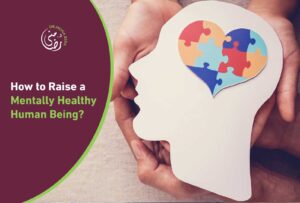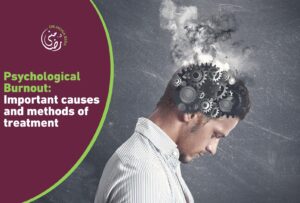Intercourse is an important intimate activity between partners in marriage, it gives a sense of comfort, physical and emotional proximity, however some people may experience psychological problems after intercourse, one of which is syndrome. “postcoital dysphoria” which is a common condition affecting many people, This syndrome is characterized by a range of psychological and physical symptoms, such as grief, Anxiety, unwillingness to engage in social and sexual activities, which may affect marital life as well as personal life in general The cause of this syndrome is due to psychological and physical factors, With increased awareness of the problem of post-sexual depression, it has become possible to recognize and effectively treat it.
What is Postcoital Dysphoria?
Postcoital dysphoria is a psychiatric disorder that affects a partner after reaching the peak of sexual satisfaction and others tend to be aggressive against the other party after having sex with him despite the course of intimacy in a satisfactory manner, although this psychiatric disorder is not widespread, many studies confirm that this phenomenon is more prevalent among women.
What are the Symptoms of postcoital dysphoria?
The degree of depression and symptoms varies from person to person, some people may feel sad and mild fatigue while others experience more severe symptoms and last longer.
Although postcoital dysphoria is not considered a serious psychiatric disorder, it has a negative impact on Marital life between the two partners.
What are the causes postcoital dysphoria?
A recent study examined women’s feelings after intimacy and found that 46% of women feel depressed or sad after intimacy at least once in their lives
One of the main reasons for a partner’s grief after sex is:
1. Unwillingness for sex: Accepting an intimate relationship without being emotionally or physically predisposed to sex may generate a feeling of sadness or depression after having sexual relations with a partner.
2. Hormonal changes: After intercourse, hormonal changes occur in a woman’s body such as low estrogen and progestogen, and these hormonal changes may affect mood and cause brain disorders.
3. Psychological factors: Experience of intercourse may lead to emotional tension or anxiety for some people, and this may lead to a sense of sadness or depression.
4. Social stresses: There may be social stresses associated with intercourse, such as shame or anxiety caused by sexual performance, and these stresses can cause depression after intercourse.
5. Education Reasons: Post-sexual depression may be caused by sex-shy upbringing and body contempt, resulting in the feeling that his needs are less important than those of the other side, not seeking to satisfy himself or feel happy and not keen to reach orgasm.
Treatment of postcoital dysphoria
There are many ways to treat post-coital disorder according to the degree of depression, its conditions and causes, the most important of which are:
1. Psychotherapy: such as cognitive behavioral therapy and dynamic psychotherapy, can help identify and deal with the psychological causes of depression, and psychotherapy can include techniques such as psychoanalysis, meditation training, and positive thinking techniques.
2. Drug Therapy: Antidepressant medications can be used in the treatment of postcoital dysphoria, and medications can also help improve sleep and relieve anxiety and stress.
3. Stereotypical changes in everyday life such as exercising regularly, improving sleep, avoiding drugs and alcohol, and eating healthy.
4. Emotional connection: Emotional communication between partners, such as speaking openly about sexual, emotional feelings and needs can help improve the psychological and emotional status of both partners.
If you suffer from postcoital dysphoria, you can contact Dr. Mona Reda, a psychiatrist and marriage consultant to enjoy a happy married life with your partner.









